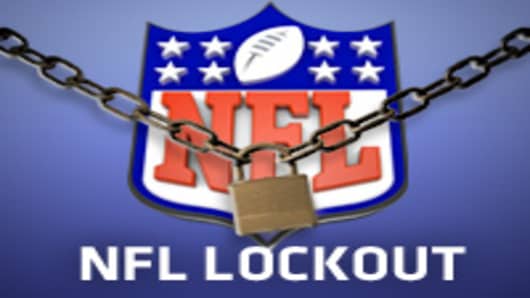“The people who will be the unfortunate casualties are those whose direct income comes from the stadium,” he said. “It may not be a lot, but it’s a lot for them.”
Unlike stadiums, sports bars like Bunny's in New Jersey see increased business every game day, not just eight home games a year.
Michael Sinesky, owner of New York City’s Pourhouse and three other sports bars in the area, wrote in the Huffington Post in February that a lockout would be a “knockout punch for many small businesses like mine.”
“There are thousands of other sports bar owners waiting breathlessly for an NFL agreement to be made, as our livelihood hinges on this decision,” he wrote.
Bigger companies might also feel it but aren’t trying to venture a guess as to how — and are reluctant to discuss it.
Gregg Billmeyer, Vice President of Premium Lights at Anheuser-Busch, which produces Bud Light, the NFL’s official beer, said they’re watching the talks with interest.
“Like everyone else, we are optimistic the NFL and NFLPA can reach an agreement,” he said. “The status of those negotiations doesn’t affect how we’re planning for Bud Light’s sponsorship of the league. In the unlikely case it’s needed, we would reinvest those dollars to reach Bud Light consumers in other relevant ways.”
And the folks at Home Depot — presumably a popular venue for bored husbands with no professional football to watch — say it's too early to think about how a lockout might affect the business.
"Our demographic is 50-50 split down the middle between men and women," said Jean Niemi, Home Depot's director of public relations. "It's hard to speculate one way or another."
But back at Bunny's in New Jersey — and bars like it around the nation — the stakes are high.
“People enjoy it, we’ve got rival fans sitting next to each other, having fun, taunting each other,” Bunny’s owner Pogany said. “Every day that the NFL is on, especially Sunday, is very big. The NFL is the only game in town, really. Right now, I’ve got soccer playing. It’s just not the same.”



